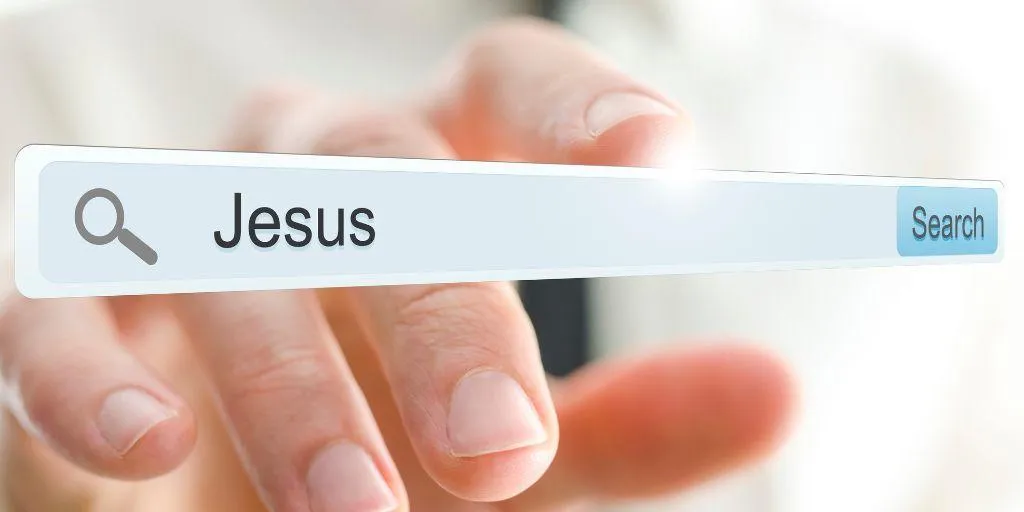Church Marketing & Management Blog
Learn How to Grow Your Church and Further Your Message

The Impact of the Internet on Religion: Changing How People Come to Faith
The internet connects people and organizations all over the world, but is the impact of the internet on religion the same? The answer is yes. However, many church leaders have not yet warmed up to the idea.
As it is, many churches are struggling to spread the gospel these days. From the rise of religious nones to the negative implications surrounding the internet as a whole, church leaders fear that relying on the internet to share their message could do more harm than good. Although that fear is understandable, it could also bring your church to an end.
Let’s take a deeper dive into the impact of social media on religion, along with the internet as a whole…
A Look at the Impact of the Internet on Religion
According to a survey by Pew Research Center on social media use, the internet has opened up a plethora of opportunities for everyone, especially 18 to 29-year-olds who spend most of their time on social media and online.
There was a time when information was hard to find, as it required searching through books in a library or making a trip to church. But with the internet, information is available at the tip of your fingers—and in a matter of seconds.
So, what does this mean for religion?
Many Christians, especially young adults who were raised in Christianity, no longer turn to their teachers, pastors, or parents for answers to the questions plaguing them. Instead, they find solace in the fact that Google has their back.
As church leaders grapple with the risk of their church closing, young people who have grown up in the digital age are finding new ways to practice and develop their spirituality. Many no longer identify as religious; instead, they like to build a direct relationship with God.
Here are some of the ways the impact of the internet on religion could change the face of the Church in the near future:
The year 2020 was the first one in history since the 1930s in which the majority of Americans claimed they did not belong to a religious group. This mainly comprised the young people who are referred to as the “nones.” Switching to a digital platform can help churches reach out to this demographic and bring them back into the Church.
Many major personal relationships start online these days. Church leaders can also build and foster relationships with existing members and potential ones.
As technology expands, new ways to utilize the internet to preach the gospel and facilitate church outreach efforts become available. From online conferencing to live streaming of sermons, it invites church leaders to be creative in spreading their message to as many people as possible.
Why Are People Turning to the Internet to Answer Questions about Their Faith?
According to research from the University of Chicago, secularization is the primary reason many Americans are losing their religion. The more informed people are, the more they seem to be disconnected from their religion—and the Church.
This is critical because the internet is an open source for information. In fact, more people are turning to the internet to find answers to their questions about faith.
The impact of the internet on religion is undeniable. Let’s break it down and look at its effects more closely…
1) The Internet Is Accessible
The accessibility of information through the internet is unparalleled. As long as you use the correct search term, you can find the answers to your questions within seconds.
This is where the impact of the internet on religion is felt the most.
A lot of the younger generation these days did not choose their religion. Instead, they were born into it through their parents, who chose that religion for them. Naturally, they have questions about their faith and the religion they are a part of. Through a quick Google search, they can get answers quickly.
2) The Internet Is a No-Judgment Zone
Another reason why people are turning to the internet for answers is that it does not judge. Many find it is a safe space to ask questions. New or inactive members of the Church are often intimidated by church leaders and members who make them feel like they are “not good enough” or “not as faithful as they are.”
Further, the internet is a welcoming alternative for those who have been hurt or disappointed by authority figures in the past and are looking for another source to validate their beliefs.
3) The Internet Is Convenient
Lastly, it is just a matter of convenience. The internet is available 24/7 and from just about any location. This appeals to people who like to feel connected and have access to information when they want it, which traditional churches can’t offer due to time and space limitations.
The impact of the internet on religion is exemplified by the fact that it allows people to learn, absorb, contemplate, and research at their own time and in their own environment.
Why Many Churches Don’t Adopt a Modern Approach
We’ve already touched upon the biblical principles of marketing to help churches thrive in this modern era. But why aren’t more churches doing their best to adapt?
Fear is a crippling phenomenon. It’s blinding church leaders from the fact that the impact of the internet on religion does not always have to be looked at from a negative lens. The other side of it is that it presents many opportunities for growth.
This is when an outside marketing team can enter the picture. The right team can help you stand firm in your biblical faith while developing the marketing resources you need to reach out to prospective church members.
Ideally, the agency you work with will stand firm in their commitment to speak your voice and use that voice to spread your message to those who are in doubt, losing hope, and struggling. This has been a very compelling approach during the pandemic, as many people are looking for a community to support them through their struggle.
You can leverage the tools of the internet to help people feel part of your church. Your blog, website, and social media can give them a sense of community at a time when they feel alone.
How a New Approach Will Support Your Mission

Is your church struggling to stay afloat and reach those who are embarking on their faith journey alone?
In that case, it might be time to take a new approach that capitalizes on the impact of the internet on religion.
Here are some ways to use the internet to help your cause…
Build a Great Website
An important rule of marketing is to be where your target audience is. And as you’ve discovered, that place is online. So, if you don’t already have a website for your church, now is the time to create one. It serves as a one-stop shop for people to get information about your ministry, calendar of events and services, and charitable causes.
A website makes your church more visible to the eyes of your church members, as well as those looking to join a community like yours. It’s also the first impression many people will get about your church, so it’s worth investing in a high-quality site that has certain church website essentials in place.
Be Active on Social Media
Businesses have relied on social media sites such as Facebook, Instagram, and TikTok to boost their reach. Churches can also use these channels to build awareness about their campaigns, fundraisers, and church activities. Moreover, they can reap the benefits of social media ministry.
Use your social media pages to foster an online community where church members can congregate virtually. This is one of the best ways to leverage the impact of social media on religion.
Blog about Relevant Topics
A dedicated blog is a great platform for churches to educate and inspire those who are looking for answers. You can do research on faith-related topics people are searching for on Google and social media. Then, you can write informative blogs and post them on your website.
By optimizing your content for search and making it freely available, you can extend your reach far beyond the walls of your church. Moreover, you can prove that you understand the challenges people encounter in their faith journey and can help them find the answers.
Final Thoughts
The impact of the internet on religion has transformed the religious experience for many people. But church leaders don’t have to (and shouldn’t) shy away from this opportunity. It’s important to embrace the fact that the internet is here to stay; you either swim with it, or your church sinks.
If you want your church to thrive, it’s wise to take steps to market your church with the help of an experienced agency. Learn more about our church marketing services today!
Frequently Asked Questions
Q:
We already have software tools and don't want to lose that data by switching. What's the solution?
The data you collect is important, so you don’t want to lose it. It helps you stay connected to the people who look to you for guidance.
The BeyondSundays team would assess your current tech profile and recommend the best way to move your existing assets to BeyondSundays.
Q:
How does this integrate with my church app?
The BeyondSundays App has an API (Application Program Interface) that can connect with most other apps and software. Most apps are able to communicate seamlessly with BeyondSundays.
Q:
What kind of support does the BeyondSundays team offer my church?
BeyondSundays was built by a full-service marketing agency, dedicated to communicating His word and assisting the churches in their efforts to do so. Beyond the mechanics, we are equipped to assist in all facets of marketing and strategic planning. You can see a full list of our services here.
Q:
How is filled-out web form information funneled to BeyondSundays?
Your BeyondSundays app in-house webforms and landing pages can easily be installed on your existing website. From there the data is already within your BeyondSundays app. If you use your own webforms, the data will be transmitted via the API.
Get Our Free "Ultimate Guide to Church Marketing Tools & Tactics"
At BeyondSundays, we're more than just another app, software platform or tech tool. We're driven by a passion for helping churches, ministries and other Christ-centered nonprofits.
BeyondSundays
More
© Copyright 2026. BeyondSundays. All rights reserved.

